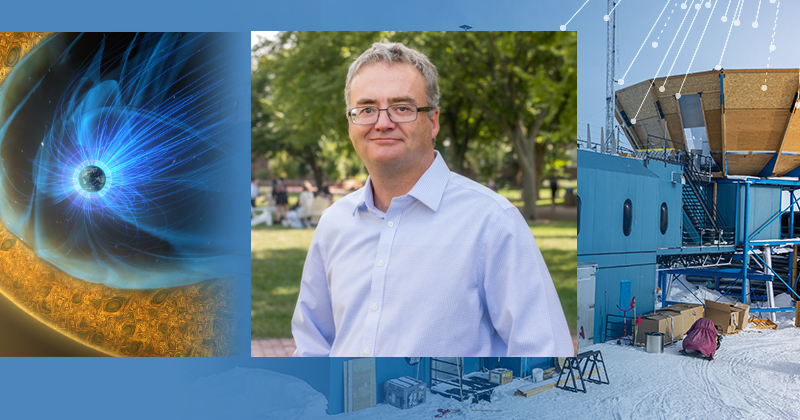
Michael Shay
Resources and Links
Biography
B. A. in Physics from Grinnell College, 1992; PhD in Physics from University of Maryland, College Park; Joined UD in 2005
Research
Michael Shay studies plasma physics using analytical theory and computer simulations. His work is applicable to a diverse set of phenomena: solar flares and coronal mass ejections on the sun, the Earth's magnetosphere and space weather, star formation in astrophysical molecular clouds and accretion disks, and laboratory experiments including laser plasmas and fusion devices. His research focuses on multiscale phenomena in which short scales (length and time) are intrinsically linked to long scales, making them extremely difficult to simulate using conventional brute force methods. Two multiscale processes he has studied include magnetic reconnection and turbulence; he has also pioneered research understanding how the two interact and reinforce each other. Prof. Shay has worked extensively with other scientists to compare his simulations with observations of plasma phenomena in space. His work has been compared with data collected from many satellites, including Wind, THEMIS-ARTEMIS, Cluster, Polar, and Parker Solar Probe.
Publications
P. A. Cassak, J. F. Drake, M. A. Shay, and B. Eckhardt, "Onset of fast magnetic reconnection," Phys. Rev. Lett. 98, 215001 (2007).|J. F. Drake, M. Swisdak, H. Che, and M. A. Shay, "Electron acceleration from contracting magnetic islands during reconnection," Nature 443, 553 (2006).
-

Celebrating a celestial centennial
September 17, 2024 | Written by Beth MillerUD’s Bartol Research Institute marks 100 years of extraterrestrial physics -
Prof. Michael Shay named American Geophysical Union Fellow
December 11, 2023 | Written by Beth MillerMichael Shay, professor of physics and astronomy at the University of Delaware, has been named a fellow of the American Geophysical Union, which recognized him especially for his breakthrough contributions and sustained impact in understanding magnetic reconnection in space.

